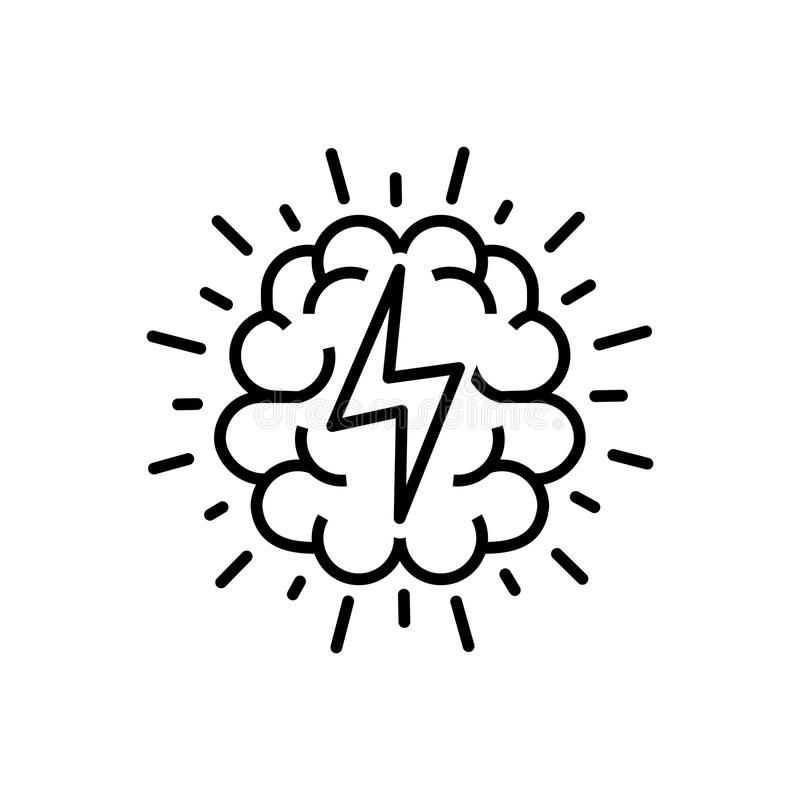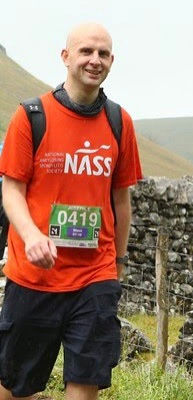Brain fog, the crippling silent side effect of chronic illness and AS.
- jeddison54
- Feb 12, 2022
- 8 min read
Updated: Mar 15, 2022
I have learnt a lot and seen a lot written lately about brain fog, fatigue, and exhaustion from AS warriors. It is not something that I had really considered in the way it was being explained but reading about it something really resonated with me, it has been a huge part of My AS journey and why walking helps to clear the fog.
This extra blog which is not a planned post as part of My AS journey but given the realisation I thought it was a good place to go next. I will get back into my sequential journey through time and how my AS has impacted life, but this post will give a great overview of something that impacts the whole journey.
So, what is brain fog and chronic fatigue and how does it interact with AS?
There is currently no definitive research and advice on brain fog and Axial Spondyloarthritis (AS). It has been proven to be linked with other chronic conditions and some under the arthritis umbrella such as Lupus and Fibromyalgia. If you research brain in the UK, you will find little as it is most often referred to here as Chronic Fatigue. In international sources and mainly the US more is out there in terms of brain fog.
The Arthritis Foundation (available at www.arthritis.org) links Rheumatoid or Inflammatory Arthritis with cognitive effects. They explain that this often manifests in RA patients as:
• Memory troubles.
• Struggling to keep attention.
• Losing mental focus.
• Forgetting things like plans or names.
• Being unable to find the right words.
Brain fog is summarised as a loss of mental clarity (mentally foggy) and can be as much of an issue as the arthritis and the pain.

The website www.creakyjoints.org sums the situation up quite well:
’Stiffness, swelling, and pain may be the hallmark symptoms of inflammatory arthritis such as rheumatoid arthritis, but many people with RA, psoriatic arthritis, ankylosing spondylitis, and other types of inflammatory arthritis don’t expect to encounter the forgetfulness and trouble thinking that often accompany these diseases.’
No one really thinks Arthritis that means you can’t thinkstraight at times because it’s just joint pain, which is a common misconception.
This is not helped by the lack of any definitive research linking the elements but a lot of theories around how inflammation can impact your brain. These range from what are called Cytokine storms which have become synonymous with long COVID. Yes, COVID has raised the issue of brain fog as it’s a common side effect, one that arthritis sufferers have been battling for years. It is thought these cytokines can change the way the brain functions. Other theories around changes to brain connections not structurally but in the s nerves. Others simply suggest it could be the fact you are focussing on the pain and fatigue of an arthritis flare that means you cannot focus.

In the UK as I said it is defined as chronic fatigue with NASSdocumenting fatigue as a major symptom of AS. They try to compare this to what most people think of in terms of simple tiredness. Tiredness is a common part of life but some good sleep sorts it out. Chronic fatigue associated with AS is not like that and can be overwhelming. It is different from tiredness because:
• it feels different to a normal tiredness.
• sleeping does not refresh you.
• it’s not due to exhaustion or lack of motivation.
NASS note many factors can contribute to this chronic fatigue:
• The inflammatory process (cytokines) causes fatigue.
• Anaemia is often part of AS and leads to fatigue.
• Long term pain wears people down and uses up their reserves.
• The pain can interrupt sleep.
• Some medicines can cause drowsiness.
• Muscle weakness can contribute to fatigue and is seen in AS sufferers.
• Depression often goes hand in hand with pain and can contribute to fatigue.

Versus Arthritis defines chronic fatigue as:
’An extreme, sometimes overwhelming, physical and mental tiredness, that doesn’t significantly improve with rest or sleep.It’s a common problem associated with arthritis and can make other symptoms, such as pain and joint stiffness feel more severe and limiting.’
They also note that it is unpredictable and can strike at any time, can last a long time and can be extreme. It can lead to lacking the motivation to do any everyday general tasks.
The evidence and definitive research may not be there but people with chronic conditions often experience side effects that lead to extreme tiredness, which impacts us mentally and impacts our lives. Whether it is described as fatigue or brain fog there are obvious similarities. It essentially is a cycle that is all linked and all need to be managed and a balance found. The cycle of pain, fatigue and mental wellbeing all need to be managed to not adversely impact each other. One factor being out of kilter can make the others worse.
What has that lightbulb moment around brain fog made me realise about my AS battle?
For me I have seen these signs of brain fog and fatigue throughout my life with AS. I have never really thought of them in the way as are described by key sources. I have always known there has been a link between how stable my condition is and how tired I feel or how easy other things are. On the flip side when I have pain it affects my mental well-being.
On seeing lots of people talk about this chronic fatigue in the way of brain fog it has given me clarity on some other times this has affected me and in different ways. I have always been a reasonable sleeper; I do not really wake up tired and only even nap if I am ill. So, the tiredness has not been an issue for me, but this fatigue makes much more sense and resonates with my AS.

It is a bit of a running joke in our house that I often muddle up words and say silly things. This is probably something that is routed in my dyslexia but is only in my memory since having AS. Alongside this I often start to talk and cannot even remember what I was saying or find the right word, which is frustrating for those around me. It can be impossible to have a proper conversation.

Over the last two years I have walked away from a couple of jobs through frustration at myself. This frustration has been at me feeling like I have failed to solve some issues or explain what I am trying to do well. It has basically felt like I have not had the mental space / capacity to think with clarity on what to do. Sometimes I would not even be able to process what I was being told let alone think about a solution. This is so infuriating to me as I am usually a strong lateral thinker and identifying innovative, structured, and pragmatic solutions. It is almost like the information is there, but you cannot recall it.
The knock-on effect of this lack of clarity or ability to think is an increase in pressure. Trying to think takes up so much time it is literally exhausting, it would stop me sleeping. No matter how hard I would try my mind would just not let me let it go but still cannot solve it.
Another way this would manifest is in absence almost from situations, my kind would be running trying to catch up and help me solve it. This brain fog impacts relationships and causes other frustration for me such as feeling like a useless Dad. It felt my frustration with myself would be picked up on by Eve and lead to her not settling, which then adds another thing in my clouded mind to try resolve.
I can recall numerous times where I can suddenly almost be in a room but no memory of getting there. It’s almost like your body has been in the room, but your mind was in another city. You can lose chunks of time.
My sort of rationale for some of this in the past has been boredom and I need to keep my mind occupied so it doesn’t get bored. I now realise that is probably the worst thing possible as I need to declutter my mind does not overload it. Decluttering it may help with getting the focus back.

My conclusion or sum up of brain fog is that it is the true silent crippling side of AS. Crippling because it can render your incapable of doing anything stuck in your own non-functioning mind. Silent because it is invisible and can be misunderstood for not caring, being uninterested or in my case comes across as grumpy. You are going through mental anguish trying to get your brain to work!
How can we possibly manage the brain fog and fatigue?
I will look at what the experts say in terms of coping mechanisms or how to manage chronic fatigue but wanted to start on my personal viewpoint.
Subconsciously the best way I can declutter my mind is, you guessed it, walking! When I am on a brisk walk I am not really focussing or thinking about anything. The radio or podcast in my ear is background noise that I am fully taking in, but it distracts my mind from thinking. This distraction and not obsessing or focussing on an issue brings clarity.

My walk to work would always be when I did my best thinking, I would come up with ideas, solutions, or questions to unlock the problem or task. I would work through them logically and by the time at work I had almost consumed them into my subconscious, and they would flow effortlessly at my desk. I have always been a reflector and consider in responses the brain fog takes that away.
There is nothing worse than failing to switch off and for me walking allows me to do that and the fog drifts away.
So, what do the experts and trusted authorities / sources suggest as tactics for clearing the fog?
NASS stress the importance of the traditional methods of manatee condition well:
• Medication to control the inflammation and pain.
• Treating any anaemia or depression or anxiety.
They also touch of self-help and self-management techniques:
• Exercising to improve strength, flexibility, well-being, energy, and sleep.
• Getting enough rest and recuperation, including a book, a magazine, or a bath.
• Relaxation techniques to improve sleep.
• Pacing yourself, planning and prioritising.
These all help to boost your energy levels and use it on the right things.
Versus Arthritis also have useful tips for self-management of arthritis and fatigue, based around the 4 p’s structure:
• Problem Solving: working out what problems add to your fatigue and find solutions to them.
• Planning: plan your time and your activities carefully to optimise energy use.
• Prioritising: prioritise what you need to do, when and what support would help.
• Pacing: not using your energy up in one go, spreading things out.
Arthritis Foundation focus on the physical impacts of sleep, medication, and exercise as keys to manage brain fog. Then the importance of noticing patterns to your brain fog and remaining in the moment as part of the mental battle.
Creaky Joints outline 12 tips for a sharper mind with similarities to other tips.
1) Set reminders
2) Take easy options
3) Stick to a sleep routine
4) A bedroom sanctuary
5) Medication options
6) Other prescriptions - no stimulants
7) Stay relaxed
8) Mindfulness
9) A workout routine
10) Yoga
11) Self compassion
12) Know your brain fog patterns
There is a lot of cohesion with these hints and tips. Like all things with managing AS and chronic conditions managing fatigue is something that needs to be planned, part of your routine and understanding how it affects you will make it more achievable. The solutions are routed in good self-care.
My learnings are identifying my brain fog triggers, remind myself of how I have successfully managed them and always retain those good habits. A lot of this is like everything in My AS journey I know what works but sticking to it during the hard times can be difficult.
Click here to give to my next walking challenge, a 50km hike around the Lake District to raise funds for NASS.







Comments